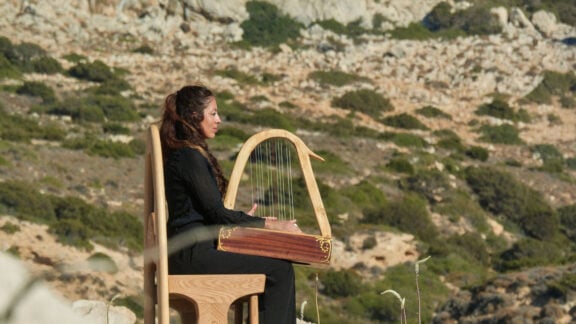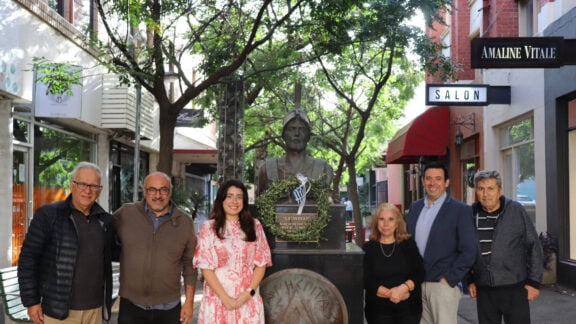Barring unforeseen circumstances, the patriarchal decree granting autocephalous, or selfruling, status to Ukraine’s Orthodox Christians is likely to be granted by the end of October.
Known in Greek as a tomos, the decree will allow for a new national church recognised by the Ecumenical Patriarchate of Constantinople to be established in Ukraine. The Patriarchate’s exarchs, or representatives, have already met with the Ukrainian President, while the Russian Church, realising the implementation of Constantinople’s historic decision is imminent, has ceased commemorating the name of the Ecumenical Patriarch during holy services.
The first official meeting between President Petro Poroshenko and the Ecumenical Patriarchate’s envoys, Archbishop Daniel of Pamphilon and Bishop Hilarion of Edmonton, took place on 17 September in Kiev. President Poroshenko expressed his gratitude to the two hierarchs for Constantinople’s decision to satisfy the request of Ukraine’s Orthodox Christians and finalise the process concerning the granting of autocephaly by sending the two exarchs to the country. He also noted that he considers it very important that he is able to speak with the representatives in Ukrainian, effectively taking a swipe at the canonical Church in Ukraine, which is under the jurisdiction of the Patriarchate of Moscow from which it takes orders.
The two exarchs, in response, stated that they are on a historic mission and that the decision of Constantinople to grant autocephalous status to Ukraine’s Orthodox Christians is irreversible.
A few days prior to the meeting with President Poroshenko, on September 14, the Holy Synod of the Russian Church was called to an extraordinary meeting in Moscow in order to discuss developments concerning the Ukrainian issue and determine its strategy, in light of the Ecumenical Patriarchate’s decision to send two exarchs to Ukraine assigned with the task of facilitating the implementation of the autocephaly arrangement.
Surprisingly, Metropolitan Onufriy of Ukraine, a permanent member of the Synod, was unable to attend the meeting in person and instead participated through video conference. Although he cited health reasons for his absence, it has been reported that the real reason was that he fears he will not be allowed to re-enter Ukraine once he leaves the country.
As for the resolutions of the meeting, apart from deciding to cease commemorating the name of the Ecumenical Patriarch during the divine liturgy, the Holy Synod also moved to prohibit all hierarchs of the Moscow Patriarchate from concelebrating with hierarchs of the Constantinople Church. This decision was put into effect immediately, with Bishop Bartholomew of Arianzos, of the Ecumenical Patriarchate, being barred two days later from serving in the enthronement liturgy of the Serbian bishop of Germany in Frankfurt, in which several Russian hierarchs were participating.
Despite these recent developments which indicate a new schism is on the horizon, Constantinople is showing no signs of going back on its decision. Having made clear to all parties involved that the granting of autocephaly to another Church constitutes the prerogative of the Ecumenical Patriarchate alone, the chances of renewed talks between Constantinople and Moscow are close to nil. Consequently, the envoys in Ukraine have no other choice but to engage with the country’s two schismatic communities—the so-called Kiev Patriarchate and the Ukrainian Autocephalous Orthodox Church—and exclude the canonical Church, which is under the jurisdiction of Moscow, from the entire process.
The position of the other Orthodox Churches
With regard to the other autocephalous Churches, their positions on the Ukrainian issue vary, with only the Churches of Cyprus and Albania, at this point in time, appearing to side with the Ecumenical Patriarchate.
Although these two Greek-speaking Churches have not yet made known their official position, based on previous situations their support for Constantinople is considered guaranteed.
Unfortunately for the Ecumenical Patriarchate, the same cannot be said for the Church of Greece given the relationship with Athens has deteriorated significantly as a result of an ongoing legal dispute between the two sides concerning the ownership of a church built on the Promponas estate in central Athens.
As for the other Greek-speaking Churches, the Patriarchates of Alexandria and Jerusalem, their ties with the Moscow Patriarchate are in very good shape, if not excellent. Indeed, Patriarch Theodoros of Alexandria visits Russia regularly, while for Jerusalem having strong ties with Moscow is a must given that a significant number of Russian priests and monks serve in the Holy Land and support the mission of the Patriarchate.
Concerning the Church of Romania, its channels of communication with both Constantinople and Moscow still remain open, and it is unlikely it will not consent to the Ecumenical Patriarchate’s decision to grant the Ukrainians autocephaly, even if this move is rejected by the Russians and some Ukrainians.
Apart from the Church of Russia, there are four autocephalous Slavic-speaking Churches within Orthodoxy and it appears that all of them are determined to support the Moscow Patriarchate and the canonical Church in Ukraine.
Recently it was revealed that Patriarch Irinej of Serbia sent a lengthy letter to Ecumenical Patriarch Bartholomew in mid-August in which he expressed the Serbian Church’s serious concern over Constantinople’s decision to essentially reward Ukraine’s schismatic communities by granting them autocephalous status despite fierce protest from the country’s canonical Church.
In contrast to Belgrade, the Patriarchate of Bulgaria has refrained from making known its views on the issue. Yet given it boycotted the Holy and Great Synod of 2016 just like the Moscow Patriarchate, it is unlikely the Bulgarian Church will support Constantinople’s decision. Of course, if Sofia decides not to recognise the new Ukrainian Church, it will undoubtedly find itself in an awkward position later on when the Ecumenical Patriarchate proceeds with its next task, that of granting a similar autocephalous status to the schismatic, so-called Macedonian Church (to be renamed the Church of Ohrid), a move the Bulgarian Patriarchate has always welcomed.
As for the Churches of Poland and the Czech Lands, which are considered within the Russian sphere of influence, it is probable these will not accept any change of the ecclesiastical status quo in neighbouring Ukraine, especially if this has a negative impact on the Moscow Patriarchate and the canonical Church. Finally, it is very likely that the Patriarchates of Antioch and Georgia will also side with the Russian Church, given both boycotted the Holy and Great Synod also and currently enjoy strong ties with Moscow, Antioch thanks to Vladimir Putin’s alliance with Bashar al-Assad (the Patriarchate is based in Damascus) and Georgia due to the country’s shared Soviet past with Russia.







